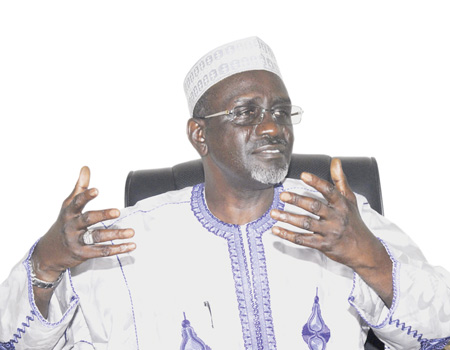
Former Governor of Kano State, Mallam Ibrahim Shekarau, stated that the adoption of the proposed community police will address security challenges in the country, asserting that community-driven policing is better than state police.
Shekarau maintained that the security problems currently confronting the state and other parts of Nigeria may become a thing of the past if community police is established to support the efforts of existing security agencies.
He stated that community policing would be better insulated from political influences, asserting that it would be better controlled than state police due to the involvement of communities and religious leaders.
The former Minister of Education, who emphasized the importance of fostering a strong relationship between law enforcement agencies and local communities, stressed that the involvement of communities in state policing would enhance trust, cooperation, and collaboration between the police and citizens.
While speaking at the Federal University of Technology, Akure (FUTA) during the launch of a book titled ‘The Psychology of Growing Old: A Personal Experience for both Young and Old,’ written by Sehinde Arogbafa, the former minister expressed concerns about the infiltration of the proposed establishment of state police by individuals with partisan interests.
He stated that the presence of “party thugs” would jeopardize the efficiency and integrity of the envisaged security apparatus and however, said the primary focus of effective and efficient security should be on intelligence gathering rather than relying solely on sophisticated weapons.
He said: “I’ve been an advocate of community policing; it is different from what is being paraded as state police. Community policing means community watch.
“There is hardly any community in Nigeria that does not have what we call the vigilante group. All we need to do is the government should organize them, the government should own up, the government should promulgate a law.
“If I may give you an example of Kano, I’m sure you must have had experience with the Hisbah Guards; that is community watch. We set up a committee of 12 elders in every ward to do the selection of 20 responsible and respected young men into the Hisbah Guards.
“We recruited them and mandated that the local government take charge of them. We’re paying them allowances. And they know everybody in the community.
“Within one to two years in Kano State, ask anybody; we don’t have any vices, no drugs, nothing in all the communities because that is community watch.
“We have over 10,000 Hisbah Guards in Kano; I did not nominate a single one; not a single party leader nominated one. It was all the elders in the community.
“The government created a law; we didn’t leave it in a vacuum. The number one assignment of the Hisbah Guards was to support and complement the work of all the Nigerian armed forces and the police. And they were working with them peacefully.
ALSO READ: Demolition: Judge berates FCTA officials for disobeying court order
“Ask anybody in Kano today, and they will tell you that people prefer to report their cases to the Hisbah Guards office rather than even the police stations or even going to court.
“What we need in Nigeria is community watch, not just when you ask a state to create 2000 to 3000 state police bombarded by party thugs, and you will find out that you are going back to the same intimidation. There will be abuses by political leaders.
“But if you allow the communities to select with the backing of the government, the government will pay them all their allowances, provide vehicles for them, and support them, and there is a chain of command from the state to the local governments, to the wards, and even to the villages.
“I refuse to call it state police because what people are looking forward to is seeing the regalia of the Nigerian Police at the state level with guns, all the equipment, armored personnel carriers (APC), and so on.
“That is not what we want. The Hisbah Guards in Kano don’t even carry a stick, not to mention a gun, but they control everywhere, and people respect it.
ALSO READ: Demolition: Judge berates FCTA officials for disobeying court order
“So, what we need is a bottom-up approach. Let the government organize a situation whereby people from the bottom will select those to do the job, but if you allow it to fall into the hands of the government, they will bring party thugs and end up using them to brutalize and terrorize people.
“But if people in the community, the Imam, church leader, DPO, and elders will be there, we don’t expect them to appoint thugs.
“Nigerian police and the military cannot monitor Nigeria. All in all, we don’t have up to 400,000 policemen in Nigeria to monitor 220 million people. Egypt has 80 million people and four million policemen. How do you expect the Nigerian police to monitor everybody? They can’t be everywhere.
“So, we hope to see the future of Nigeria in terms of security if we monitor well. 80 to 90 percent of security matters involve intelligence gathering, not weapons and equipment.
“These people who are kidnapping and involved in insurgency are not coming from the moon; they live in the communities, and it is the villagers that know them.
“If they bring a policeman from Ondo State to Kano State to work as DPO, how will he know the community? No matter how intelligent his equipment and weapons are, there is no way he can move into the bush.
“That is why they are ambushed because they don’t know the terrain. But if the communities are involved, they know every nook and cranny, and they provide the intelligence.”
Source: